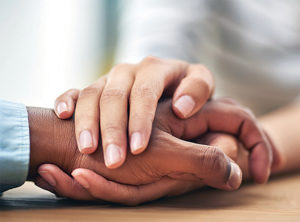Submitted by Covenant Caregivers

- This column is adapted from an article provided by eCaring.
If you have an elderly parent, chances are you have spent more than one sleepless night worrying about their future.
When faced with the daunting task of elder caregiving, many don’t know where to begin. But the answer might be as simple as letting your loved one stay put — helping them age comfortably and gracefully at home.
Home care is not the best solution for every eldercare situation, particularly if the home environment is unsafe or if your parent has very intensive medical needs. However, for millions of American families, home care is a sure bet.
Beyond the cost savings, home care offers your parents the ability to remain in their own home. By surrounding them in a safe, therapeutic environment, you can prolong their health and do wonders for the wellbeing of your entire family.
Below, we offer several considerations that can help you make an informed decision about keeping your aging parent at home:
1. Home care promotes recovery.
No matter the duration, hospital stays can be traumatizing. Rapid-fire medical procedures can leave an older adult in a compromised state. Home care in a familiar environment allows one to receive the best support in healing, both in body and mind.
2. Home care saves money.
Institutional care comes with a hefty price tag. A good rule of thumb is that eight hours or less per day of home care will be less expensive than care in a facility.
3. Home care honors your loved one’s dignity and independence.
Throughout life, our home is our castle, our sanctity — and that doesn’t change as we add more candles on the cake. The home setting gives our loved ones more choices and the opportunity to be more active participants in their healthcare decisions. With home care, there is freedom to choose a doctor, nurse, or home health aide that works best for each individual.
4. Home care is personalized.
No one person, lifestyle or situation is the same. Home care recognizes how essential specialized care is to maintaining health, and offers individualized services based on individual needs and preferences. By definition, home care is one on one. It is typically provided by a unified team of practitioners that may include home health aides, nurses, social workers, therapists and physicians, depending on the level of care needed.
5. Home care keeps families together.
Knowing your loved one is in a safe, therapeutic environment of his or her choice helps reduce feelings of guilt associated with caregiving. Family members can visit as often as necessary without concerns about “stepping on other people’s toes.”
6. Home care is safe.
While hospitals are generally regarded as safe, more than 20 percent of those hospitalized develop a complication such as an infection. The one-on-one attention of home care means your loved one receives swift, immediate care — no red tape, no forms, no bureaucracy. A qualified home-care professional can also provide easy safety fixes such as grab bars and anti-slip rugs.
7. Home care extends and improves quality of life.
Home care postpones institutionalization and prevents premature decline. By encouraging independence and self-directed care, home care keeps aging parents in charge of their own lives for as long as possible. Older adults heal faster at home. Home care helps extend life by eliminating stressors associated with aging. Home care also enriches the quality of our loved one’s later years. Those receiving home care tend to report high rates of satisfaction with the services they receive, and with life overall.
8. Home care and technology go hand in hand.
In today’s hyper-connected culture, home care makes more sense than ever. As more adult children live far from their aging parents, technology makes remote caregiving possible. In rural areas, home care is the only form of healthcare available. Thankfully, the practice of telemedicine makes it possible to diagnose, monitor and treat conditions, all from a patient’s home.
9. Home care is the oldest and most respected form of health care.
From the beginning of civilization, elders have aged in place in their own homes. Modern technology has only elevated home care’s potential. Though home care has been centuries in the making, the best is yet to come!